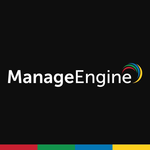What is our primary use case?
JIRA Service Desk is used as a support solution with the support team to manage support service delivery to customers. I coached a big banking company using JIRA Service Desk to record customer incidents that require support. With the product, we have two different layers of incident management. Level one is for the call center and level two is for the agents who repair or try to resolve the incident using a software team.
If their team can't resolve the problem, we create particular bug issues in JIRA software, and the development team creates a plan to correct the issue and confirms the experience in order to provide a resolution. The issue is returned back to layer two, and layer two discusses the problem with layer one. After that, layer one speaks to the customer and explains the status of the problem.
How has it helped my organization?
It helps us to provide better customer service.
What is most valuable?
The best part of the application for me is the ability to manage the issues. Within the different layers, you can set priorities, define task management, assign tasks to the software team or to different groups or functions to help manage solutions in JIRA. I use different features in JIRA Service Desk for the software team. It is a broad solution that affects different layers of the organization.
Because the software team and development team can use the solution to manage and track projects more efficiently and work together as a team, they find and resolve problems better.
What needs improvement?
I think that JIRA Service Desk is a very good product and that it is full of features that work well to manage tasks. It has the flexibility to handle many different activities and it is very good at this. Especially in the latest version, it has some new features and capabilities that were added so that it is even better.
The one thing I would like to see is better capabilities to integrate with products other than parts of the Atlassian system. For example, if there is a Microsoft product that is better for another team the integration may be difficult or impossible.
Any one business process software can't do everything a system needs. For example, I have experience with JIRA and TFS (Team Foundation Server). TFS is a very good application and a good solution for software development teams. It's not the perfect solution for all parts of an organization and maybe does not fit an organization's needs well. In some cases, it may be better. It depends on the use. If you want a broad solution for your company, for task management, or issue tracking, TFS is not a good solution. For software development, TFS is very, very good and may be just what you need.
After using the product and knowing the benefits of TFS, I thought that combining the systems would be the best solution: the combined system could help the company to decrease the time it took to process software issues. I think JIRA Service Desk does not have features that are as good for tracking fix times or bottlenecks in the process. You can use different plug-ins for JIRA Service Desk to add some functionality, but these plug-ins are very expensive. It would be nice if JIRA Service Desk added in some of these features for this type of support.
But about the plugins, I found one plug-in — its name is Actionable Metric I think — and it is $3000. That is very expensive for users in Iran. For most customers, I would not be able to propose this solution because it's very expensive. But it is also very important to some of the projects I consult with. Because of that, it eliminates JIRA Service Desk from consideration, because we can't integrate them into the system.
Buyer's Guide
JIRA Service Management
April 2025
Learn what your peers think about JIRA Service Management. Get advice and tips from experienced pros sharing their opinions. Updated: April 2025.
848,253 professionals have used our research since 2012.
For how long have I used the solution?
I have been using JIRA Service Desk for four years
What do I think about the stability of the solution?
The product seems very stable. We have never had a problem.
What do I think about the scalability of the solution?
I think the product is very scalable as long as the hardware can handle the usage.
We have never had a problem. Two years ago, I had a launch of Service Desk in a bank in Iran and we had 8,000 issues to track for the core banking system.
This launch was very, very good because we used an IT framework in this company and returned used a post egress system for response to bank customers or bank users. We could use Jira software for the response to this incident and resolve that.
We had 8,000 issues two years ago, and the company continues to use this product and I am sure that they have been able to scale and track more.
How are customer service and support?
The Atlassian technical support is actually very good and responsive.
Which solution did I use previously and why did I switch?
I worked in a different company and when I was there they were using a different solution. It was an airplane company in Iran. For part of my job, I was tasked with finding the best solution for managing tasks in different layers of the organization — different tasks for different departments. For example, I wanted them to record requirements for cost and team level or management level. Unfortunately, with the product they were using, I could not find these solutions for task management. As this was critical, I needed to do some research into other task management solutions. After a search I found some reviews on ITCentralStation.com, I found from the reading that the Atlassian system would be better to serve our needs because of the features. I looked at other solutions and reviews but I finally chose the JIRA system.
This is the best application for me because it supported different solutions and could be one big solution for different layer of the organization using JIRA Service Desk, JIRA software, or JIRA Core.
How was the initial setup?
While I think the installation and deployment were very simple for me, the company should have different ways to find solutions independent of technical support and they need a better installation guide for installing different applications. My team and I tried to do an installation on the last server for a new client in a different environment than we usually use. We installed different portals for addressing that and I have had experience installing two or three of the top DevOps tools. This was very easy by comparison.
There have occasionally been some problems, but it is usually very good and very simple.
What about the implementation team?
I am an Agile development coach and systems consultant and our team does our installations ourselves.
What other advice do I have?
I think I had the opportunity to learn a few things by working with JIRA Service Desk. It has been a good solution and supports good practices, but it is not everything every company needs. I can't find a better single solution for a better approach to tracking and better customer satisfaction. I have a better picture of customer needs and gradation.
I have more experience in JIRA software because I worked with it in many different companies now. Some years ago I was a Java Software developer and had a lot of experience with Scrum and agile development and we used JIRA software. I think I can speak better about JIRA software because I was a software developer.
On a scale from one to ten, where one is the worst and ten is the best, I would rate JIRA Service Desk as a ten. For my experience, it is the best product on the market for use in enterprise installations.
Disclosure: I am a real user, and this review is based on my own experience and opinions.























